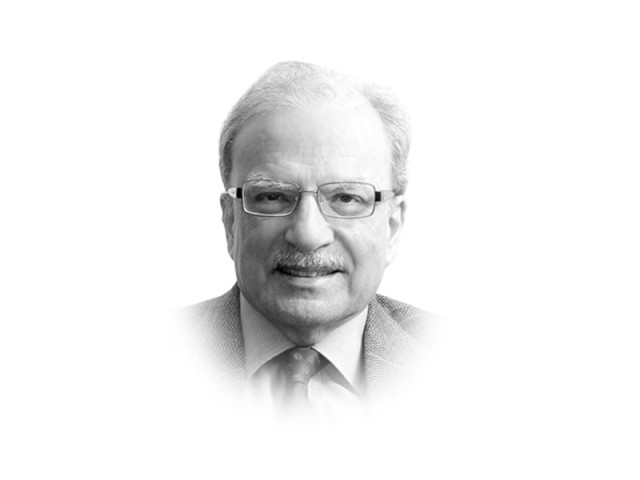Rebuilding Pakistan’s external contacts
External affairs will demand serious attention from the Sharif administration during its first few months in office.

The writer is a former caretaker finance minister and served as vice-president at the World Bank
By adopting this approach, the government has moved from total preoccupation with India and the perceived threat from that country as the sole determinant of foreign relations. It is clear that the administration wants to repair Pakistan’s relations with India and is convinced that the country would be better served if close economic relations are established with the much larger and economically more vibrant neighbour. There is hope in Islamabad that the Indian response to the many overtures it has already made will be more positive once the cycle of state and national elections currently underway in that country is completed in the first half of 2014.
The government is also mindful that a botched American exit from Afghanistan would further unsettle Pakistan’s north-western border which is already in a state of turmoil. No doubt the prime minister is aware that America’s total withdrawal from Afghanistan — the so called ‘zero option’ which will not leave behind a residual force of 8,000 American troops, will destabilise Afghanistan and have severe economic consequences for Pakistan. In 2011, Pakistan had a trade surplus of $2.4 billion with Afghanistan which was entirely financed by America’s assistance to Kabul. The zero option will remove that source of financing the Afghan trade deficit with Pakistan.
The third issue that confronts the new administration in reshaping external affairs concerns relations with the United States. These were deeply frayed in 2011 and remain troubled. In charting a new course, Prime Minister Sharif must contend with public opinion. According to a recent survey conducted by the Washington-based Pew Research, Pakistanis have the most unfavorable view of America among the two score countries studied by the institution. Prime Minister Sharif paid a visit to President Barack Obama in the White House in late October and expressed the hope that in resetting relations, Washington will pay more attention to Pakistan’s economic and social development than to the fight against extremism. But this restructuring has to take place while America is redefining its own place in a fast-changing world. China has risen rapidly and is now asserting its economic prowess in global affairs. In doing so it is not reluctant to use its increasing military strength. This great power competition will be played out in Pakistan’s neighbourhood and must be factored into the way Islamabad refashions its external relations.
Beijing was the first capital the Pakistani prime minister visited after assuming office in June. During his visit there, there he signed a memorandum of understanding that will result in the building of the China-Pakistan Economic Corridor. It will use the already operational Karakoram Highway (KKH) as the main artery. The KKH will be extended to the port of Gwadar on the Balochistan coast. Ultimately, a railway line, gas and oil pipelines and a fiber optics cable will be laid along the highway. Several industrial parks will be built along the corridor in which the Chinese enterprises will use Pakistan’s abundant cheap labour to reposition some of their labour-intensive industrial enterprises. The planned corridor can be seen as a part of China’s ‘look-West’ policy. It will not only open its landlocked provinces in its Western part to the sea but will also provide access to the oil and gas riches and mineral wealth of the Middle East and Central Asia. This mega project will need financing that is well beyond Pakistan’s limited means. In looking for resources, Islamabad could explore the possibility of doing ‘structured finance’ that would involve the private sector and multilateral and bilateral development agencies. In tapping the private sector, Pakistan could also look at the possible participation of its immensely well-endowed diasporas in Great Britain and North America.
The unexpected turn taken by the Arab Spring of 2011 must also be factored into Islamabad’s external affairs calculus. The Arab world is still struggling with the task of evolving political systems that would accommodate an increasingly assertive and liberal-minded middle class with political Islam and the military. Of the large non-Arab Muslim states, Pakistan is the only one that seems to be succeeding in developing such a political order. For some time, Turkey seemed to have also set itself on the right track but is now faltering. Pakistan, in other words, could present itself as a model for other Muslim states to follow. But the Arab Spring has rekindled the old Sunni-Shia rivalry of which Pakistan, which bears the second largest Shia population in the world after Iran, must be mindful. In all, external affairs will demand serious attention from the Sharif administration during its first few months in office.
Published in The Express Tribune, December 30th, 2013.
Like Opinion & Editorial on Facebook, follow @ETOpEd on Twitter to receive all updates on all our daily pieces.















COMMENTS
Comments are moderated and generally will be posted if they are on-topic and not abusive.
For more information, please see our Comments FAQ